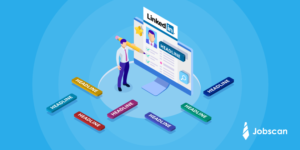Did you know that 65 percent of recruiters and hiring managers prefer candidates with relevant work experience? That’s why it’s critical that you outline your relevant experience on your resume. This helps recruiters see what you bring to the table and assess whether you are the right fit.
But what does relevant experience mean, and how can you best showcase them on your resume? In this quick guide, you will learn tips and examples on presenting your experiences to impress recruiters.
What is relevant experience?
Relevant experience is any work experience you have that is directly related to the job you are applying for.
Showing your relevant work experiences helps recruiters see if you are fit for the job.
What experiences can you consider relevant?
Any experience that shows that you have the skills, competencies, and abilities to do tasks related to your desired role or industry is considered relevant.
These can include experiences from your:
- Previous roles
- Volunteer work
- Internships
- Freelance work
- Projects
- Training and certifications
- Leadership roles
- Academic activities
- Part-time work
The key is that the experience has to be directly applicable to the job or role you are applying for.
5 Tips on demonstrating relevant experiences on your resume
Here is how you can effectively identify and present your experiences on your resume:
1. Study the job description
First, you need to review the job description and understand what it requires.
Some jobs might require years of experience, a certain level of education, or knowledge of specific software or tools. They might also outline specific skills needed for the job.
Next, you must comb through the job description and list the requirements and specific skills mentioned.
Then, carefully assess whether you have the skills and professional background that prove you are eligible for the job.
You can also use a tool like Jobscan, which uses AI to analyze the job description and highlight the job-specific skills and competencies you need to include in your resume to increase your chances of getting interviews.
Here’s what a scanned job description looks like:

2. Focus on measurable results
Measurable results are your specific accomplishments. They provide concrete proof of your capabilities and the value you bring to the company.
Instead of just listing your job titles and job responsibilities, highlight your notable achievements. You can also emphasize any promotions you earned and highlight tangible results.
Use numbers to show the impact you made and quantify your contributions using figures, dollar amounts, percentages, or metrics.
For example:
Instead of saying:
Developed programs for employees to improve customer service.
You can say:
Developed programs for employees, which increased customer satisfaction by 20% within three months.
Using measurable achievements adds credibility and makes your application more attractive to recruiters.
3. Showcase transferable skills
Transferable skills are skills you can use in different jobs, fields, or industries.
Examples of transferable skills include communication skills, problem-solving skills, critical thinking, and leadership skills.
In your resume, emphasize how you used those skills to excel in your previous jobs.
For example:
Suppose you are a nurse transitioning to a career in HR. You can frame your relevant experience this way:
Nurse, WeCare Hospital, Seattle WA
- Collaborated with different teams to develop comprehensive care plans tailored to each patient’s needs, demonstrating strong teamwork and communication skills.
- Assessed patient conditions, identified problems, and implemented timely interventions to achieve positive outcomes.
- Demonstrated excellent time management and organizational skills, effectively managing multiple responsibilities in a high-pressure setting.
It is critical that you list all the skills mentioned in the job description. You can do this by manually highlighting the skills or using a tool like Jobscan’s resume scanner.
It saves you time by analyzing the job description and giving you a comprehensive report of how you can better match the job.
It also gives you a list of hard skills and soft skills you should mention to stand out to recruiters.
Here’s what the hard skills section of the report looks like:

All you have to do then is work these skills into your resume. You also have to aim to match the number of times a specific skill is mentioned in the job description.
In the image above, “business development” appears three times in the job description. This means that it should also be mentioned at least three times in your resume.
4. Include volunteer work, certifications, and other relevant activities
When listing your relevant experience, include any volunteer experience, training, workshop, or certifications. Make sure they are relevant to the job you are applying for.
If you have limited work experience, you can include extracurricular activities. You can also include experiences from. your freelance work, internships, or other leadership roles.
You just need to frame your experiences in these activities to show recruiters that you are right for the job.
For instance:
Let’s say you are applying for a job in customer service, but you only have experience volunteering at a food bank.
You can mention the key skills you used or notable accomplishments you had while volunteering. Make sure to write it in a way that shows recruiters how these experiences uniquely qualify you for the role.
Here are sample relevant experiences:
- Implemented an efficient queuing system, reducing wait times by 20%.
- Helped train new volunteers in customer service protocols. This contributed to a 25% increase in overall volunteer efficiency and effectiveness.
In this example, although your experiences are drawn from volunteer work, they still show how you can excel in customer service.
5. Tailor your relevant experience to the job
The key is to tailor your relevant experiences to the specific job. Do this, especially when you are applying to many jobs.
It is important that you choose experiences that relate to the position. You should prove to recruiters that you have the relevant skills and abilities to do the job well.
Tailor your entire resume to the specific job you are applying for
When you submit your resume, it often goes into an applicant tracking system (ATS). This system helps recruiters quickly sort through hundreds of resumes.
Recruiters use the ATS to search for suitable candidates. They do this by typing job-specific keywords into the search bar.
Keywords can be:
- Job titles
- Skills
- Software or tools
- Industry-specific jargon
If your resume lacks specific keywords, no matter how qualified you are, recruiters will not be able to see it.
To prevent this, you need to tailor your resume to the job. Go through the job description. Then, pick out the relevant keywords and incorporate them into your resume.
Yes, this will increase your chances of getting noticed by recruiters. But it can also take a lot of your time and energy.
Thankfully, there are tools that automate this, such as Jobscan’s resume scanner. It matches your resume to the job description and gives you a resume score. It also suggests other ways to improve your resume so that it matches the job.
All you have to do is upload your resume and the job description and click “Scan.”
Here’s what it looks like:

Aim to increase your resume score by incorporating the keywords and following the tips. The higher your score, the higher your chances of being seen by recruiters.
However, don’t overdo it and stuff your resume with too many keywords. Just include the relevant ones.
Relevant work experience examples
There are different ways to showcase your relevant experience in your resume.
Here are examples of how to craft relevant experiences. They are useful whether you are just starting out, switching jobs or careers, or already a pro.
When you have limited work experience
When you lack work experience, you can include any volunteer work, internships, freelance work, and other activities.
Instead of outlining your job responsibilities, show what you accomplished. Include measurable accomplishments when possible and use strong action words. Then, tailor your experiences to the specific job you want.
Here is an example of a job description for an entry-level marketing analyst position:

A good relevant experience example for a recent business graduate applying for this job looks like this:

When you are a career changer
When switching careers, show how your skills, knowledge, and experiences from your past roles make you effective in the new role. Demonstrate the impact you made in your previous employment and include measurable achievements. Show transferable skills and use strong action words. Also, make sure your experience matches the job.
Here’s an example:
Let’s say you are a sales manager applying for a human resource manager post. The job description would look like this:

Here’s what you can include as relevant experience in your resume:

When you have relevant professional experience
When your experience matches the job you want, you need to prove your expertise and success to recruiters.
You can do this by highlighting your most relevant and significant contributions. Use measurable accomplishments and tailor your experiences to the specific requirements of the role.
Here’s an example of a product developer job description:

Here’s an example of a great relevant experience section for this job:

Use Jobscan’s free ATS-friendly resume templates and start building your resume that gets noticed by recruiters!
Frequently asked questions
A relevant experience is any experience you have that directly relates to the job you are applying for.
Relevant experience can include your experiences from your:
1. Previous jobs
2. Volunteer work
3. Internships
4. Freelance work
5. Part-time job
6. Projects
7. Extracurricular activities
We recommend that you focus on your most recent experiences from the past 5 to 10 years.
You can show recruiters, hiring managers, or prospective employers that you have relevant experience by stating your experiences in your resume summary, work experience section, or skills section.
Just make sure that you tailor your experiences to the specific job you are applying for.
Try scanning your resume into Jobscan to see whether it matches the job description.
Make your resume stand out and get noticed
Upload your resume to see what’s missing and get a free match rate.
View full results and optimize your resume

















